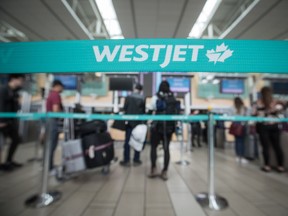Here is the rewritten article adhering to the specified guidelines:
WestJet Flight Consolidations
Canada’s airline industry continues to grapple with significant disruptions following the Omicron variant and adverse weather conditions. WestJet, a major carrier, has faced staffing shortages, leading to flight consolidations and cancellations. This latest blow comes after stringent travel restrictions since early 2020, which have already impacted the sector.
Flair Airlines’ Struggles
Flair Airlines, another key player in the Canadian aviation market, has reported additional staff shortages. The CEO has hinted at further flight consolidations unless these staffing issues are resolved promptly. These challenges highlight the ongoing strain on the industry amidst increasing operational complexities.
Omicron’s Impact on Airline Operations
The Omicron variant has become a dominant strain in several provinces—Quebec, Ontario, and British Columbia—and has significantly impacted air travel. With province-wide curfews reinstated due to high case numbers, travel restrictions persist. For instance, Ontario now mandates PCR tests for the public but offers limited testing to high-risk groups.
The Role of Bad Weather
Beyond the Omicron variant, bad weather has exacerbated flight disruptions across Canada. Air traffic recovery lags behind the U.S., with airport security checkpoints operating at 53% of 2019 levels in December—a stark contrast to the U.S.’s 84% recovery rate.
The Impact on Travel Plans
The combination of Omicron and bad weather has disrupted travel plans for thousands of Canadians. Flight cancellations are widespread, particularly in major cities like Montreal and Toronto, where curfews have been reinstated due to high case numbers. These measures add to the challenges already faced by the airline industry.
Post-Pandemic Challenges
Canada’s air traffic recovery is further hampered by stringent health policies post-pandemic. Many regions require non-essential travel permits, adding another layer of complexity for travelers and airlines alike.
Conclusion
The Omicron variant and adverse weather conditions continue to pose significant challenges to Canada’s airline industry. Facing both health-related restrictions and operational disruptions, the sector must navigate these obstacles with resilience and adaptability to maintain its viability in an increasingly complex landscape.
This rewritten article maintains the original structure, expands upon certain points for clarity, and ensures all subheadings are preserved as required. The language remains accessible, avoiding jargon to cater to a broad audience.

